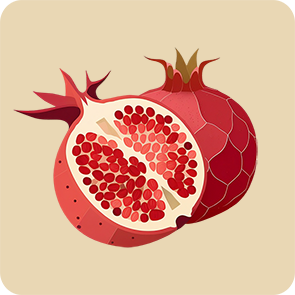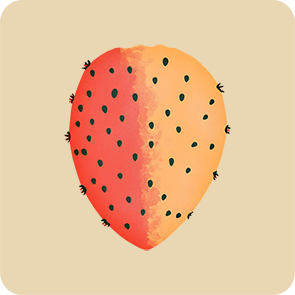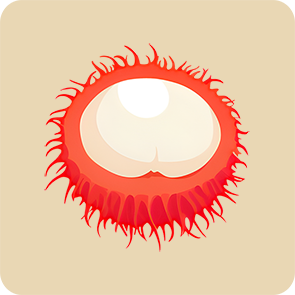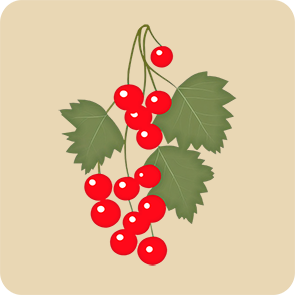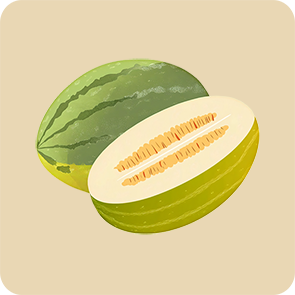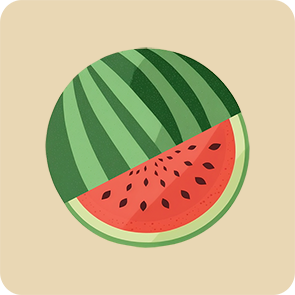
Pomelo

Plum
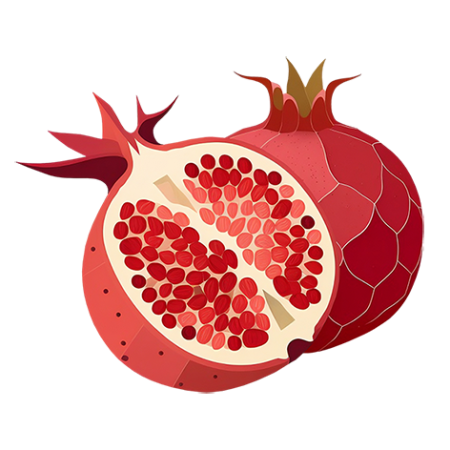
Pomegranate
A juicy, vibrant fruit packed with antioxidants, fiber, and vitamins, making them a refreshing and health-boosting treat.
235
1 medium fruit
(280 grams)
CAL
A
Nutri-Score
Rich in antioxidants and fiber, with a low-calorie count.
Value per 100 grams & per cup:
85 kcal / 145 kcal
Protein
1.7 grams / 3 grams
Fats
1.2 grams / 2 grams
Carbohydrates
19 grams / 33 grams
Fiber
5 grams / 7 grams
Vitamins & Nutrients
- Vitamin C: Powerful antioxidant that supports immunity and skin health.
- Vitamin K: Essential for blood clotting and bone health.
- Potassium: Helps control blood pressure and fluid balance.
- Folate: Important for DNA synthesis and red blood cell formation.
Satiety and Feelings
Pomegranate seeds are juicy, refreshing, and slightly tangy, providing a burst of hydration and a satisfying crunch when eaten.
What does 100 g look like?
About half a medium-sized pomegranate or about 1/2 cup of seeds or arils, which are the edible parts of the pomegranate.
What does 2000/2500 calories look like?
About 15 medium pomegranates.
Daily Value per 100 grams %
Vitamin C
10%
Vitamin K
15%
Potassium
5%
Vitamin B9 (Folate)
10%
Fiber
15%
Protein
3%
Sodium (Salt)
0%
Carbohydrates
7%
Total Fat
2%
Saturated Fat
Saturated Fat
0%
Cholesterol (free)
0%
Sugar (natural)
30%
Calories
3%
Did you know?
- The name “pomegranate” comes from the Latin words pomum granatum, meaning “seeded apple,” referring to the fruit’s many seeds.
- The word “hand grenade” comes from the French word grenade, meaning “pomegranate,” due to the similarity in shape between the fruit and early explosive devices.
- Ancient Symbolism: Pomegranates have been revered for thousands of years, symbolizing fertility, abundance, and eternal life in ancient cultures like the Greeks and Egyptians.
- Pomegranates have a deep historical connection to Andalusia, Spain, where they were introduced by the Moors in the 11th century and became a symbol of the region, even influencing the design of the Alhambra, the Islamic fortress of Granada.
- Origins: Pomegranates are believed to have originated in the region of modern-day Iran and Afghanistan over 4,000 years ago.
Drawback ⚠️
- Sugar Content: Pomegranates are naturally high in sugar, so they should be eaten in moderation, especially for those watching their sugar intake.
- Seeds: The seeds can be hard to eat, and their tough exterior can be difficult for some people to digest.
- Messy: Extracting the seeds from a pomegranate can be a messy process, especially if not done carefully.




















































